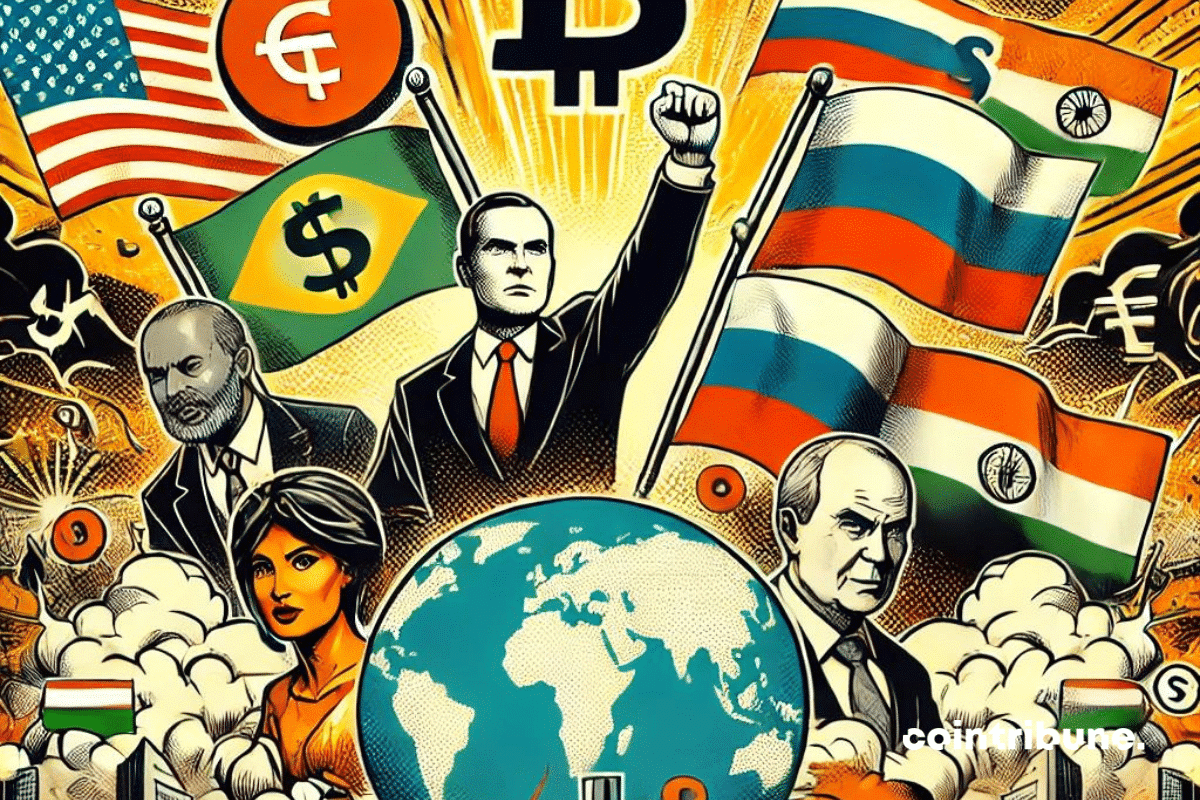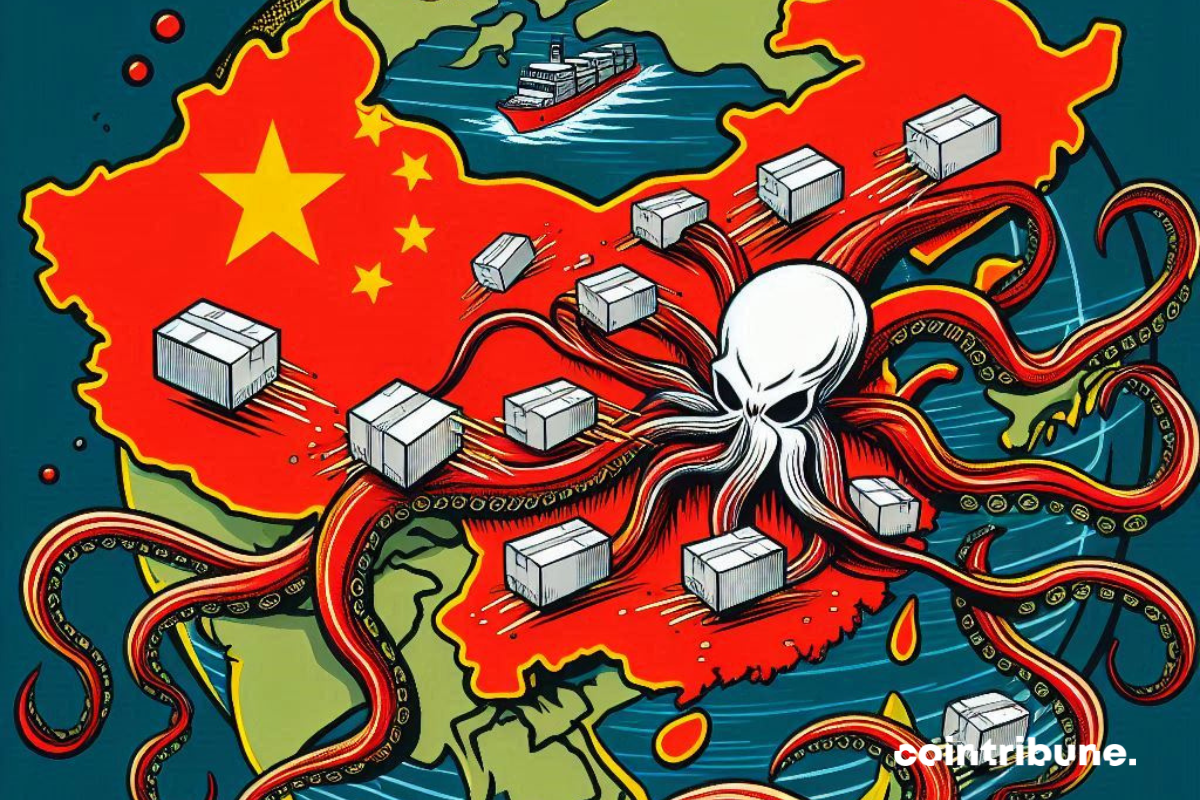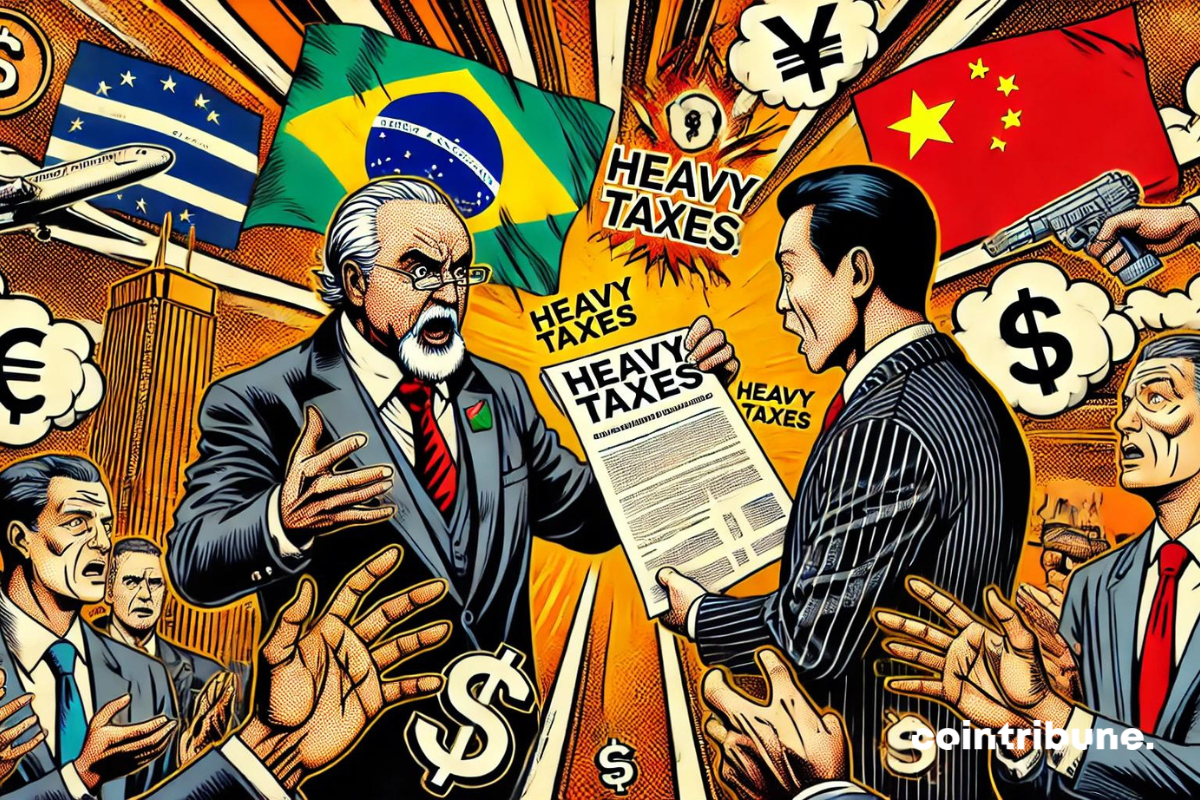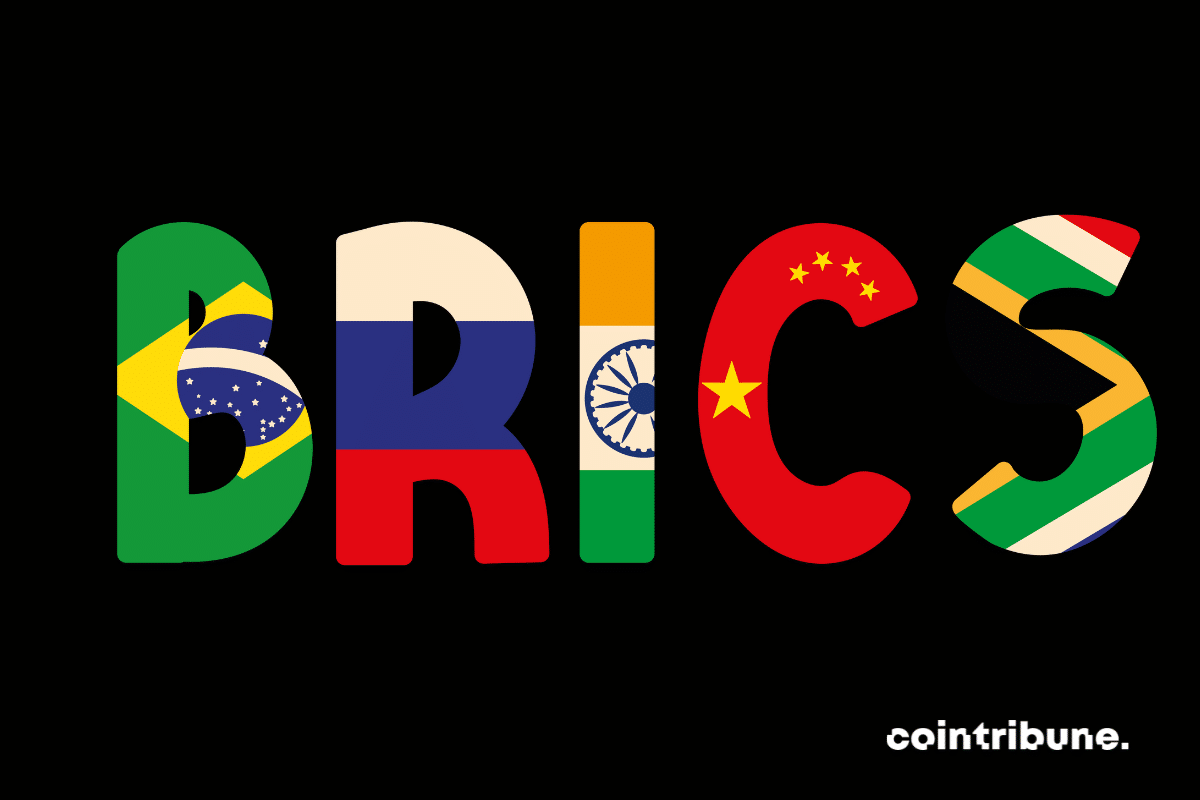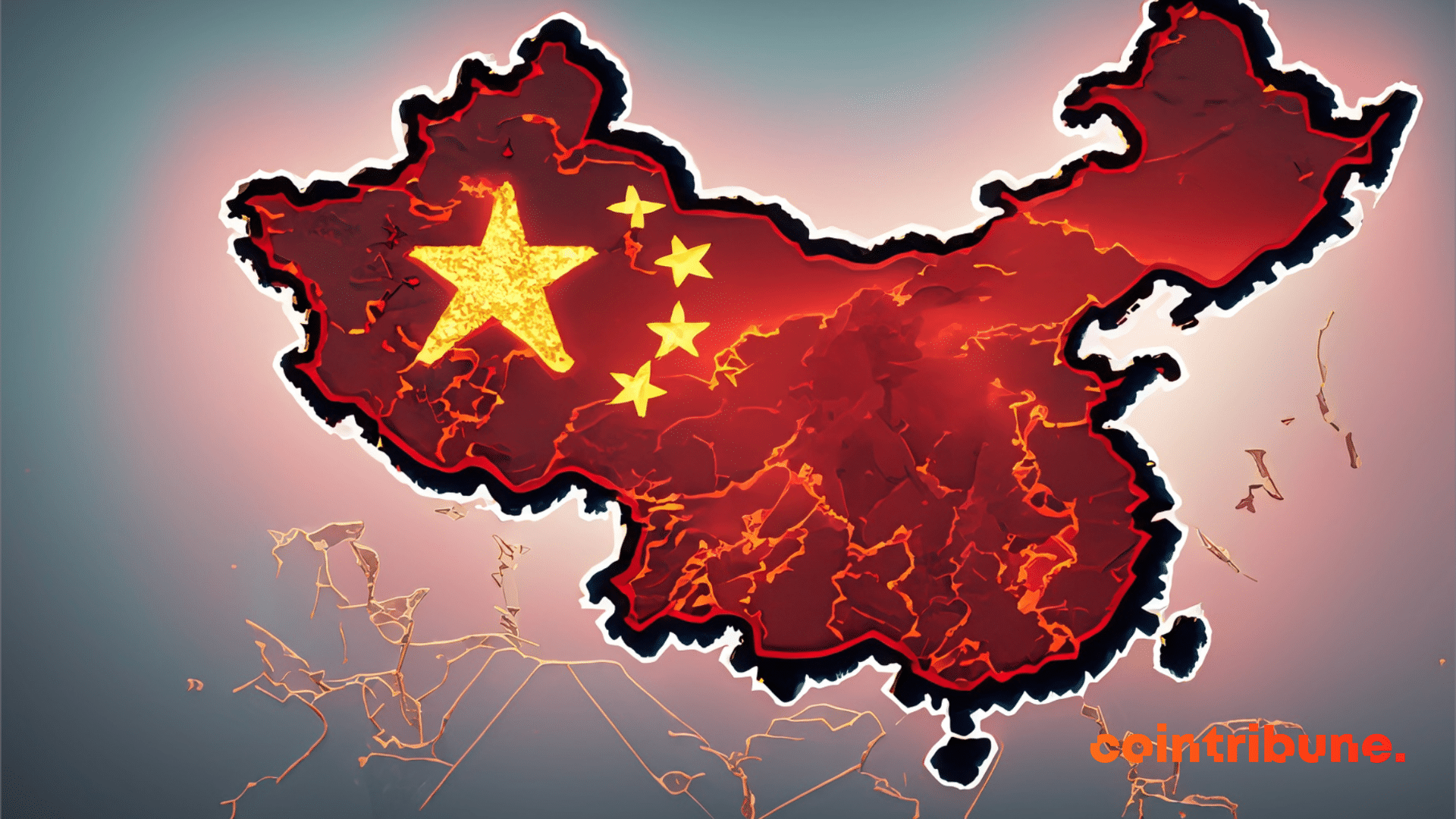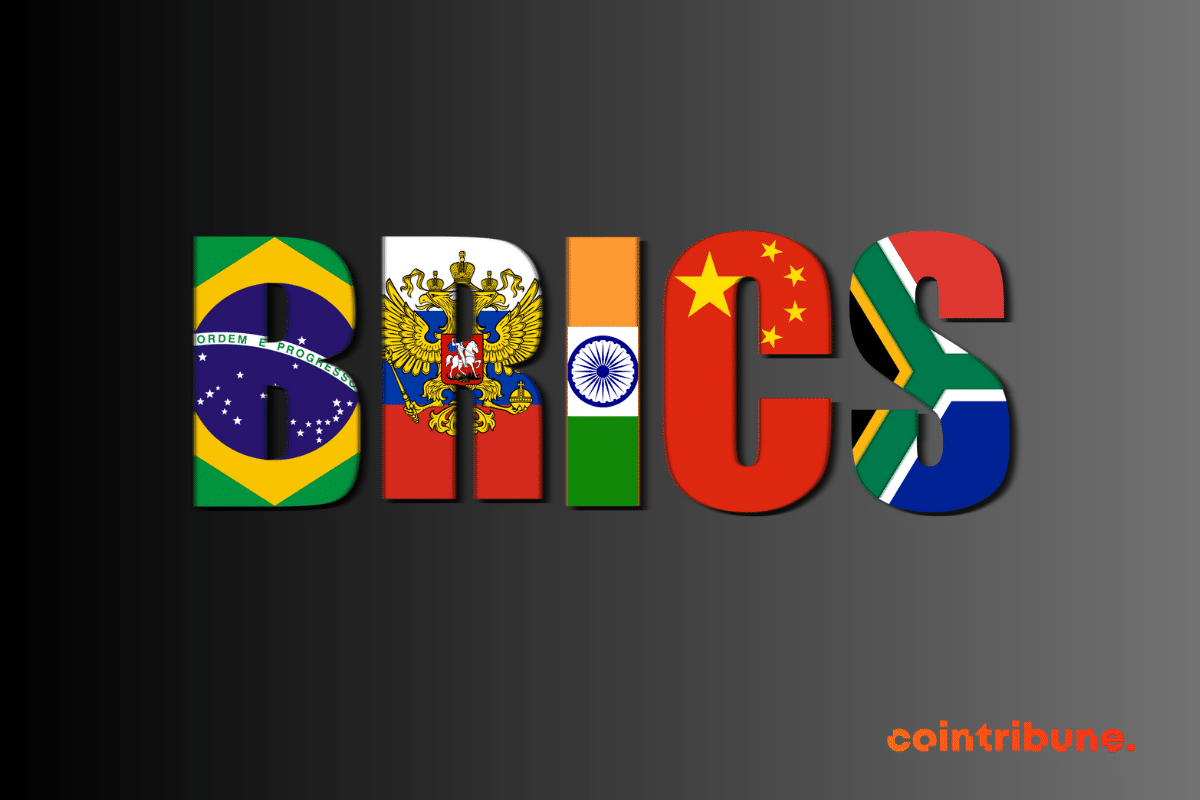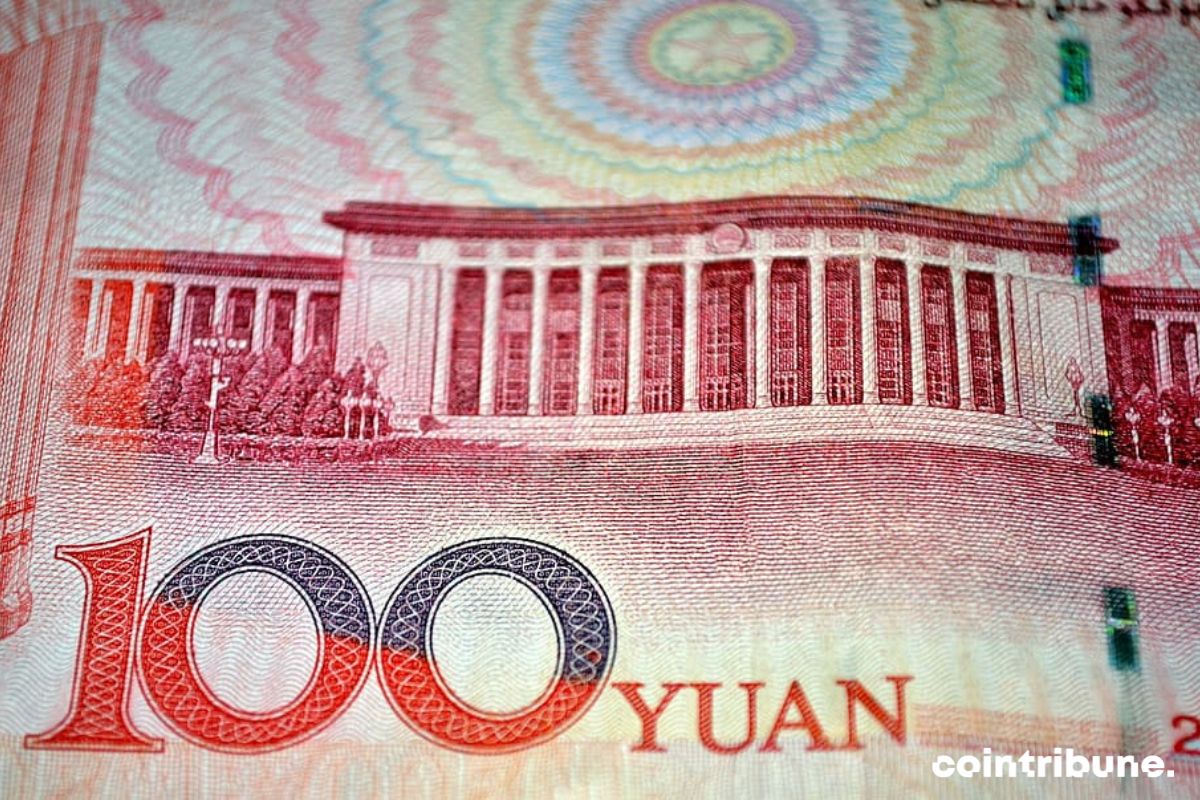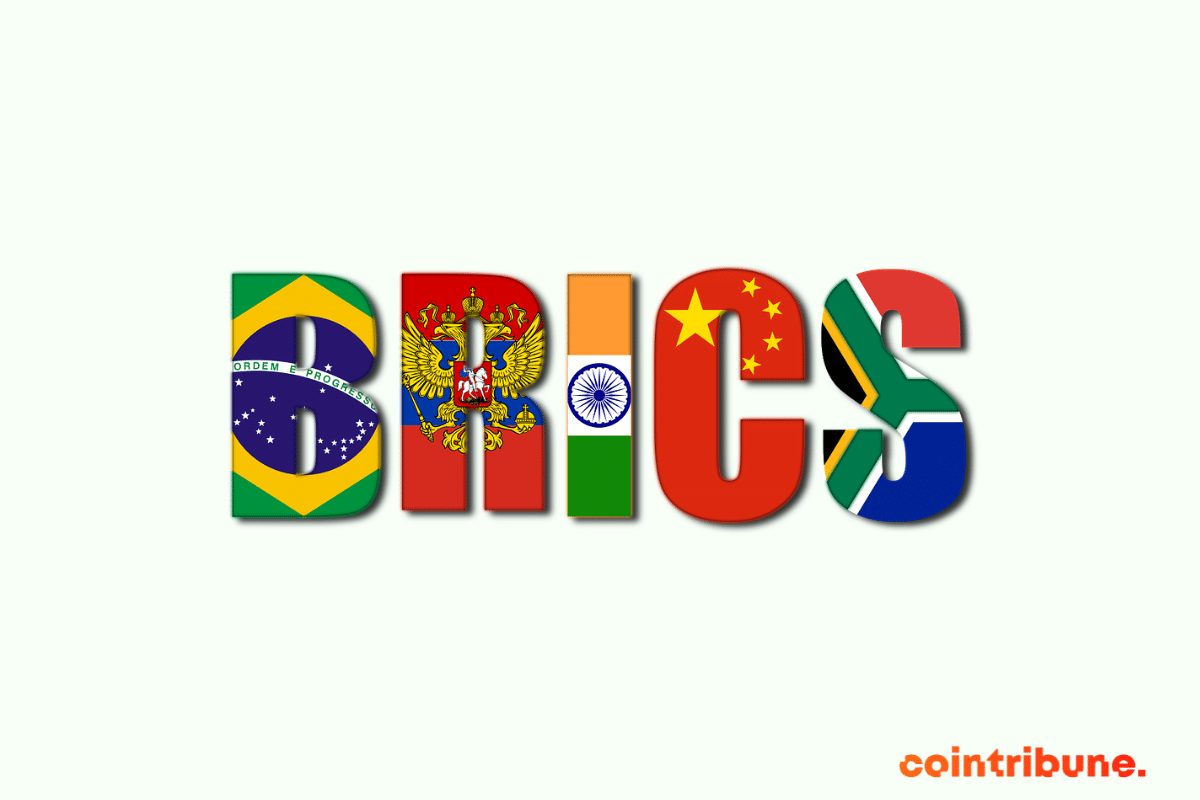Will the world stand by if the United States creates a strategic reserve of bitcoins?
Brazil
As countries seek to protect themselves against economic and geopolitical turbulence, Brazil is taking a bold step towards financial innovation. A bill currently introduced in Congress proposes the establishment of a federal Bitcoin reserve, an initiative that could redefine the role of cryptocurrencies in national economic management. Inspired by the experiences of other nations, this project raises questions about the future of monetary policies in an increasingly digital world.
When 134 countries play sorcerer's apprentices with CBDCs, it is 98% of the global economy that enters a zone of digital turbulence.
The global monetary landscape is undergoing significant changes. As the influence of the US dollar falters under the weight of geopolitical tensions and aggressive economic policies, the BRICS are poised to redefine the rules of the game. They are working to launch a new reserve currency, an ambitious project that could shake the supremacy of the greenback and reshuffle the cards of international finance. In the face of the impact of economic sanctions, trade wars, and a perceived excessive dependence on the dollar, these emerging powers are coming together to assert their economic sovereignty. However, this new currency, envisioned as a direct alternative to the US-dominated financial system, raises as many hopes as it does doubts.
In a Brazil facing a significant annual monetary devaluation of 13%, protecting one's assets has become a major challenge for investors. As the local currency, the Brazilian real, gradually collapses, the search for effective solutions to preserve purchasing power intensifies. In this context, Bitcoin, often seen as a risky asset, proves to be a top alternative. With positive returns over the last decade, it outperforms gold and many traditional stock indices.
The American and Western hegemony is being challenged by the rise of China. As Beijing continues to strengthen its economic influence across the globe, perceptions vary significantly depending on the income levels of nations. This analysis explores how China is reshaping the global economic landscape and the contrasting reactions from different regions of the world to this evolution.
Chinese Exports: The world alarmed by the Asian giant
In a context of fierce international competition, Brazil has adopted a new policy that could well redefine its trade relations with a long-standing partner, China. This initiative affecting the Middle Kingdom with which it shares the BRICS bloc is part of a series of measures aimed at protecting local industries, facing a significant economic challenge. The implications of this decision promise to be vast and profound.
Influx of record and diversification of crypto assets since the beginning of the year: cryptocurrencies attract investors.
Brazil, one of the founding countries of BRICS, has just broken its bilateral relations with Israel. The cause is a statement by Brazilian President Lula da Silva on the war being waged by the Israeli state in the Gaza Strip.
The possibility of a common currency for the BRICS has been making headlines for several months. The latest news is that three out of the five member countries of the organization are particularly ready for the realization of this revolutionary monetary option from a geopolitical point of view. Here's which ones.
“Not your key, not your coin”, cryptocurrency investors keep chanting. In other words, when keys are secure, assets remain safe from any theft or hoarding initiative. However, Ivan Bianco, a Brazilian crypto influencer, inadvertently exposed his private keys. The result: a good part of his cryptocurrency holdings evaporated.
There's a growing chorus insinuating that the American hegemon is threatened by the BRICS. But what's really going on?
Avec plus de 40 % de la population mondiale et près de 26 % de l’économie mondiale, les BRICS s’affirment de plus en plus comme une puissance émergente au point de concurrencer les grands groupes comme le G7. Ce regroupement de pays émergents a le vent en poupe et enregistre de nombreuses demandes d’adhésion. Ces demandes risquent de ne pas être acceptées de sitôt, car le Brésil serait contre l’expansion du groupe, selon certaines sources.
Argentina will start paying for its Chinese imports in yuan instead of dollars. This decision aims to relieve the country's dwindling dollar reserves.
The global slingshot against the dollar is raising the specter of a world war. To avoid it, Bitcoin has to become the next international reserve currency.
For some time, the BRICS countries, including Russia and China, have been working to move away from the US dollar. Recently, China formalized an agreement with Brazil to trade state to state, without using the dollar. This desire for financial independence could be realized through the adoption of a digital currency.



